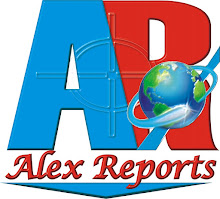The Sultan of Sokoto, Sa’ad Abubakar, has expressed concern over the deep-rooted environmental, political, and security challenges affecting the prosperity and peace of the Sahel region.
Abubakar stated this in Abuja on Thursday at the 1st News Agency of Nigeria International Lecture, themed, “Insecurity in the Sahel, 2008 to 2024: Dissecting Nigeria’s Challenges – Genesis, Impacts and Options.”
Represented by the Emir of Gumi, retired Justice Lawal Hassan, the Sultan noted that the Sahel region is blessed with abundant human resources, offering tremendous potential for rapid economic growth.
He described the Sahel as the vast semi-arid region of Africa, separating the Sahara Desert in the north from the tropical savannah to the south, representing a land of opportunities and challenges.
“With its abundant mineral resources like lithium, cobalt, and uranium, among many others, the Sahel could be described as one of the richest parts of the globe.
“It is expected to be home to 1.5 billion people by the year 2050 and has one of the largest and youngest populations in the world.
“However, despite its abundant human and natural resources, which offer tremendous potential for rapid economic growth, there are deep-rooted challenges—environmental, political, and security—that are affecting the prosperity and peace of the Sahel,” he said.
Abubakar mentioned that to address some of these challenges, the United Nations (UN) has developed a unique support plan targeting 10 countries to accelerate prosperity and sustainable peace in the region.
He identified the 10 countries as: Burkina Faso, Cameroon, Chad, The Gambia, Haiti, Mauritania, Mali, Niger, Nigeria, and Senegal.
The Sultan explained that the support plan focuses on six priority areas: cross-border cooperation, prevention and sustainable peace, peace-to-growth, climate action, and renewable energy.
He further stated that the overarching goal of the UN Support Plan for the Sahel is to accelerate shared prosperity and lasting peace in the Sahel and the surrounding regions by implementing priorities aligned with the 2030 Agenda for Sustainable Development and the African Union’s Agenda 2063.
“The support plan highlights the enormous opportunities in the Sahel and its vast assets in natural resources, energy, tourism, and culture.
“It aims to mobilise public resources and attract targeted investments in the 10 countries to support ongoing efforts,” he added.
According to him, macroeconomic conditions in the Sahel have been steadier and stronger than the continental average over the past decade.
The Sultan noted that the regional support plan for the Sahel would be inaugurated in Gwane during a high-level meeting of the Sahel and the 31st African Union Summit in Nouakchott, Mauritania’s capital.
He explained that the inauguration, followed by the creation and deployment of the G5 Sahel Joint Force and the United Nations Integrated Strategy for the Sahel, would bring tangible progress to the region.
However, he pointed out that while these efforts are commendable, one critical aspect of achieving peace and building the Sahel’s economy has not received the attention it deserves.
He highlighted this aspect as the historical, cultural, and religious connections among the people of the Sahel.
“A lot of the social integration that took place over the centuries was driven by the religious factors of the past, which leveraged existing trade routes and created new ones, while also establishing new towns and cities, centres of commerce and life.
“Over the last millennium, these movements have created an interesting mix of relationships.
“A good understanding of this phenomenon can provide deeper insight into the factors influencing some of these economies.
“It will also provide a stronger foundation for building the future Sahel, enabling us to utilise the rich human and material resources for the greater benefit of humanity,” he stated.


.jpg)










.jpg)













.jpg)

Post A Comment: